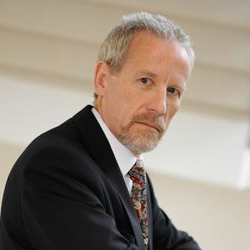
by Keith Grint
- 26 April 2021
Share:
In 1931 Herbert Butterfield, a British historian, wrote a book called The Whig Interpretation of History, which criticized the idea that time might be considered as an arrow pointing to an inevitably better future. This line of argument had little to do with heroic leaders or political ideologies and more to do with progress towards a constitution rooted in British parliamentary democracy which, as its supporters claimed, would see all countries advancing towards a more civilized society. In short, the Whig interpretation was that things would only get better and better.
Needless to say, the Holocaust and the Second World War put a rather large dent in that optimistic scenario and ushered in the approach of a time, now lost in the mists and often co-located at a point in a tribe or organization or country’s history, when extraordinary leadership saved us from a nefarious position, and to triumph over today’s challenges we all need to replay that time warp. For the UK, that time seems to be 1940 when Churchill singlehandedly (or perhaps with help from the plucky British, but without the help of anyone else and certainly not the millions of Commonwealth soldiers or thousands of escaping European soldiers, sailors, and pilots), saved the entire world from Nazi domination.
The idea of a fabled golden age is common in leadership writings, especially when former leaders are glorified or when we yearn for a time when such leaders were allegedly plentiful. Of course, the fables are seldom true, and most contemporaneous records of previous “great leaders” are full of what Oliver Cromwell referred to as a “warts and all” picture. It is often only when such people die, or are viewed backwards through time, that they acquire something close to sainthood. But “to ring the bell backward,” as T. S. Eliot put it in his poem Little Gidding, is to drag us all into history, to keep us frozen in some gelatinous leadership aspic, which inhibits us from addressing contemporary and future issues.
Even within a crisis it might be beneficial to delay a decision, if only for a few seconds or minutes, just to make sure you are heading in the right direction or taking the most appropriate action.
Now the point about time is to consider both how important it is for the maintenance of identity and how difficult it is to transcend. Some suggest that we just need to engage in a rational debate about the past in order to dissolve any present tension — almost as if we should sit both sides of any long standing conflict around a table and say, “OK, now take as long as you like, but when a consensus emerges as to which side was responsible for which massacre in what year, then we can put this all to bed and move on.” That, of course, will never happen because time does not heal wounds in the way we would hope. Indeed, as David Rieff (2016) suggests, at what point should we stop remembering the pain of the past in order to preserve the peace of the future? Or as Karl Deutsch put it, is not a nation “a group of people united by a mistaken view of the past and a hatred of their neighbours?” (quoted in Hyde, 2019: 187).
Time also intersects the practice of leadership. Delaying a decision by extending the time needed to decide, for example, can often be derided as procrastination, the mark of an “indecisive leader.” However, it is a prerequisite for dealing with a wicked problem, since, by definition, you cannot know the answer. Even within a crisis it might be beneficial to delay a decision, if only for a few seconds or minutes, just to make sure you are heading in the right direction or taking the most appropriate action. But oftentimes the pressure on new leaders is to appear to be doing something immediately – the infamous first 100 days trope. This is especially acute in positions with rapid rotations, such as the military, or for those recruited to turn round failing organizations. Yet, unless the new incumbent is aware of the precise nature of the problem, the chance of them making an immediate decision that is appropriate is probably less than their desire to make a bold statement announcing their arrival. Those quick decisions are likely to alienate all the existing staff, who almost certainly have a better understanding of the problems and solutions to existing issues than any newcomer, but the pressure might seem irresistible. Indeed, as Darley and Batson’s (1973) “Good Samaritan” experiment suggested almost fifty years ago, whether or not people take the time to help others in trouble is more likely related to whether they feel they have the time to address the problem, than whether they are ostensibly “good,” let alone religious citizens.
In fact, as Santos et al. (1994) suggest, if you really want to make people pay attention and give you “the time of day,” then you need to disrupt their social conventions in some way, such as asking for a specific amount of change, “can you spare seventeen cents,” rather than, “can you spare a dollar” or starting a meeting at 9:06 not 9:00. And there are other elements of time that leaders – and followers – need to be aware of. For instance, we know that those subject to criminal prosecution are more likely to receive heavier punishments if they are sentenced just before lunch and far more likely to receive more lenient sentences first thing in the morning or just after a break (Danziger et al., 2011). We also know, for example, that victims of domestic abuse in England are more likely to give evidence against their abuser if their legal cases are put before the court within days, rather than months after the incident. Furthermore, whether or not they do so often depends on if they perceive time as cyclical (“this is a repeating pattern”) or linear (“next time will be his last chance”) (Barrow-Grint, 2016).
The importance of how leaders choose a frame for time (as opposed to a time frame) is fruitfully explored by Clark (2019) in the contrasts he draws between Frederick II of Prussia, who tried to sever the link in time between Prussia’s past and what he hoped would be its radically different future; Bismarck, who was desperate to retain the past; and Hitler, who wanted to create a timeless Nazi empire. We do not have to look far to see how notions of the past are regularly used by contemporary political leaders to construct a new present or future, as “Make America Great Again” testifies. Choosing whether you have time for something or not is exactly that, a choice, not something determined by external events. Thus, Prime Minister Johnson refuses to hold a review of his government’s handling of Covid-19 now because they don’t have time in a pandemic, but they do have time to hold a review of the recent attempt to launch a new soccer competition in Europe.
Naturally, there are some people who long for the time when a decisive leader will arrive, resolve the cataclysmic issue facing their community, and save the world. This is certainly the frame for Max Weber’s (1978) understanding of a charismatic leader, but his interpretation of the phenomena is restricted to a handful of superhuman individuals who are prophesied, who are capable of repeating miracles, and who owe their position to the adulation of followers. Contemporary accounts of charisma are more closely aligned to those individuals with strong character, enormous self-belief, and confidence. The success of such individuals is often related to the timing of their quest for power. For instance, it is clear that voters’ memories are notoriously short when rewarding or punishing those vying for office. Had COVID-19 not arrived, it seems quite likely that President Trump would have won a second term. And had the Oxford-AstraZeneca vaccine not arrived, it seems likely that Prime Minister Johnson’s position in the polls would be significantly worse than it is now. But, as Marx said, “Time flies like an arrow; fruit flies like a banana.” That would be Groucho, not Karl.
References
Barrow-Grint, K. (2016). Attrition Rates in Domestic Abuse: Time for a Change? An Application of Temporal Sequencing Theory. Policing: A Journal of Policy and Practice, 10(3), 250–263. https://doi.org/10.1093/police/pav054
Butterfield, H. (1931). The Whig Interpretation of History. Bell.
Clark, C. (2019). Time and Power. Princeton University Press.
Danziger, S., Levav, J. & Avnaim-Pesso, L. (2011). Extraneous Factors in Judicial Decisions. Proceedings of the National Academy of Sciences of the United States of America, 108(17), 6889–6892. https://doi.org/10.1073/pnas.1018033108
Darley, J.M. and Batson, C.D. (1973). From Jerusalem to Jericho: A study of Situational and Dispositional Variables in Helping Behaviour. Journal of personality and Social Psychology 27, 100-108.
Deutsch, K. W. (1969). Nationalism and Its Alternatives. Random House.
Hyde, L. (2019). A Primer for Forgetting: Getting Past the Past. Canongate Books.
Rieff, D. (2016). In Praise of Forgetting. Yale University Press.
Santos, M., Leve C., & Pratkanis, A. (1994). Hey buddy, can you spare seventeen cents?
Mindful persuasion and the pique technique. Journal of Applied Social Psychology, 29, 755-764. https://doi.org/10.1111/j.1559-1816.1994.tb00610.x
Weber, M. (1978). Theory of Social and Economic Organization. Free Press.

Keith Grint is Professor Emeritus at Warwick University. He has held Chairs at Cranfield University and Lancaster University and was Director of Research at the Saïd Business School, Oxford University. He is a Fellow of the International Leadership Association (ILA) and Professorial Fellow of the Australian Institute of Police Management (AIPM). He is also a founding co-editor with David Collinson of the journal Leadership, and co-founder of the International Studying Leadership Conference. He received ILA’s Lifetime Achievement Award in 2018. His books include The Arts of Leadership (2000); Organizational Leadership (2005); Leadership: Limits and Possibilities (2005); Leadership, Management & Command: Rethinking D-Day (2008); Leadership: A Very Short Introduction (2010); and Mutiny and Leadership (2021).

